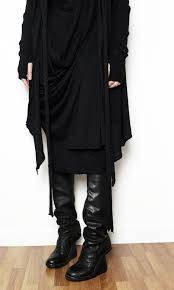An unprecedented devotion to artistry along with an uncanny revere for its ancestry accurately describes the craftsmanship of the fashion house: Guidi. Founded in 1896, Guido Guidi, Giovanni Rosellini, and Gino Ulivo would later establish Conceria Guidi Rosellini, Italian for "Guidi-Rosellini Tannery" (Guidi, n.d.). In doing so, the trio managed revolutionize the mask of an artisan good that currently serves as the very nucleus of fashion, leather. This proved to be an honorable feat, with respect to the location of the settlement being Tuscany, a region in central Italy in which leather tanneries dates back to the middle ages.
Such an intrinsic connection to the manufacturing of leather products relies upon a keen understanding of the many kinds of leather, their individualistic properties, and the most advantageous mechanisms in which they are produced. Guidi, rebukes the ideology known as mass production, substituting the convenient mechanism for a more organic approach, mandating that all products be completely made by hand, with no products serving as a duplicate of another, which explains why the production of these products is masterfully elongated to ensure the cultivation of an optimal product is established and transparent.
The first step to the process of the leather based treasuries is the fleshing of the respective mammal, ensuring that an optimal amount of thickness is achieved, Guidi allows themselves three to five days to soften the skin using a pre-historic hand-tool, known as a "palmella", followed by the use of similar glass and stone based tools used for purposes of greasing. As soon as the skin is palpably favored, the skins are, tanned, dyed, and dried separately. Every step must be undergone before Guidi is to offer an item such as the Guidi 988 boots (currently being sold for nearly $1100 USD), where the outer portion of the shoe's upper body and lining of were constructed with the same single piece of 100% horse leather (Farfetch, n.d.). A notable feature of Guidi products is 'transpiration', which offers a prime level of comfort and durability for those actually wearing the leather throughout any season of the year, ensuring the user to get a considerable amount of use for the product in the summer as well as the winter. However, Guidi universally accommodates to the needs of its owner, beautifully epitomizing the concept of consumerism.
Presently, the creative director of the brand is Ruggero Guidi. Ruggero has successfully sustained the legacy of his predecessors with his inherited enslavement to divineness. Much of this due to his obsession for supreme leathers and regard for the family name, infused with an inclination to expand upon the mantle handed to him. He is in constant search for a compromise between technological advancements while utilizing the fundamentals of tannery. Ruggero stands as the leather tanner that the most demanding fashion designers around the world aspire to collaborate with. Whether it's polishing the raw materials, or the dying of shoes as they tumble. Guidi constructs items to display the degree of quality of the items used in its work-a multitude of soft, delicately layered, pleasantly scented hides, tailored for enthusiasts seeking exclusivity in products that can only be crafted by the few.
"The art of the tan" is a mantra often echoed throughout the history of the brand, reflecting the chronic implementation of the grace of its forefathers amidst the integration of modernization Guidi is the personification of luxury and tradition, focusing on independently conducted research to solidify that each piece is distinctively characterized for the sole use of its rightful owner.




No comments yet
Be the first to share your thoughts!